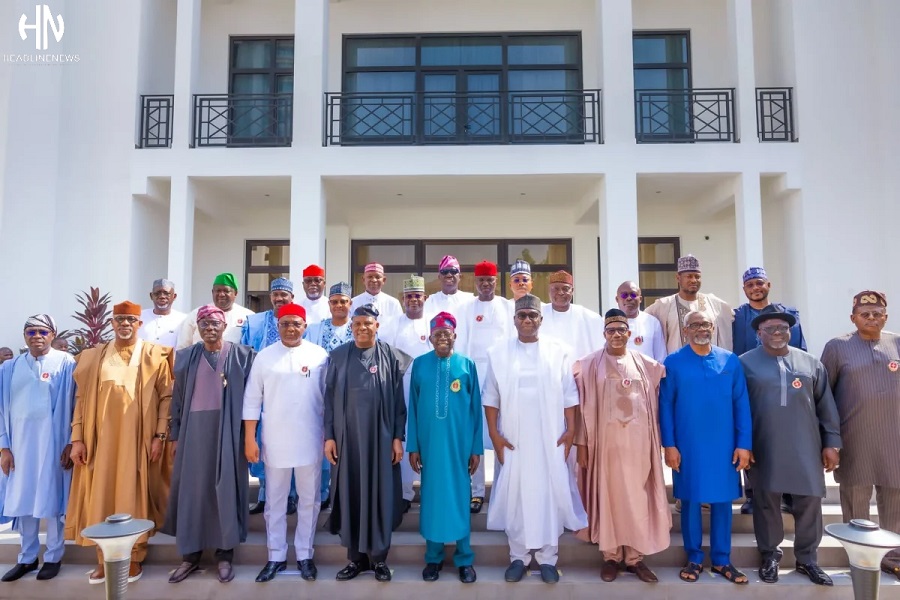President Bola Ahmed Tinubu has called on state governors to prioritise the welfare of citizens by channeling more investments into rural electrification, agricultural mechanization, poverty reduction, and infrastructure development.
Speaking at the 150th National Economic Council (NEC) meeting held Monday, July 28, 2025, at the State House Council Chambers in Abuja, Tinubu appealed following a presentation on the Renewed Hope Ward Development Programme (RHWDP) by the Minister of Budget and Economic Planning, Senator Abubakar Bagudu.

The RHWDP—a new ward-based strategy targeting Nigeria’s 8,809 administrative wards—was unanimously endorsed by the Council. The program is designed to fast-track double-digit economic growth through direct grassroots investment, aligning with the president’s vision of building a $1 trillion economy by 2030.

“The economy is on the path of recovery, but we must stimulate growth in rural communities. Let us change the story of our people in the rural areas,” Tinubu said.
He urged state leaders to deepen collaboration with the Federal Government on rural development, emphasizing agricultural modernization, enhanced security, and expanding school feeding to improve enrollment.

To ensure key legacy projects — particularly the Lagos-Calabar and Sokoto-Badagry Super Highways — are delivered, the president also directed that the Office of the Surveyor-General of the Federation be moved to the Presidency for closer coordination and execution oversight.
Renewed Hope Ward Development Programme (RHWDP)
The RHWDP is structured to serve as a joint effort among federal, state, and local governments and will be monitored by a National Steering Committee with representation from all six geopolitical zones. The Ministry of Budget and Economic Planning will serve as its secretariat.
Key features include:
-
Economic empowerment for at least 1,000–2,000 active individuals per ward.
-
Legal backing from the 1999 Constitution and Fifth Alteration Act.
-
Promotion of food security, modern production methods, and sustainable rural economies.

NEC Moves to Strengthen Flood Preparedness and Emergency Response
In response to projected flood risks in 2025, NEC has directed all states to urgently strengthen their State Emergency Management Agencies (SEMAs) and operationalize Local Emergency Committees.
The decision follows a detailed presentation by NEMA Director-General Zubaida Umar, outlining Nigeria’s 2025 flood risk management efforts and challenges.
With the support of the UN, NEMA has produced a new National Disaster Risk Reduction Strategy (2024–2027) and activated emergency operations centers nationwide. Search-and-rescue equipment has also been deployed to high-risk zones.

Yet, the agency noted ongoing hurdles including:
-
Poor drainage and environmental sanitation,
-
Weak state-level emergency structures,
-
Insecurity in flood-prone areas, and
-
Delayed data sharing from state governments.

States have been urged to enforce physical planning laws, institutionalize sanitation, and prioritise disaster funding in their budgets. Local governments and communities are also encouraged to lead flood mitigation efforts, report early signs, and engage in awareness campaigns.
To support these efforts, the Council directed the Federal Ministry of Finance to disburse emergency funds to all states, the FCT, and key federal agencies involved in flood response.




